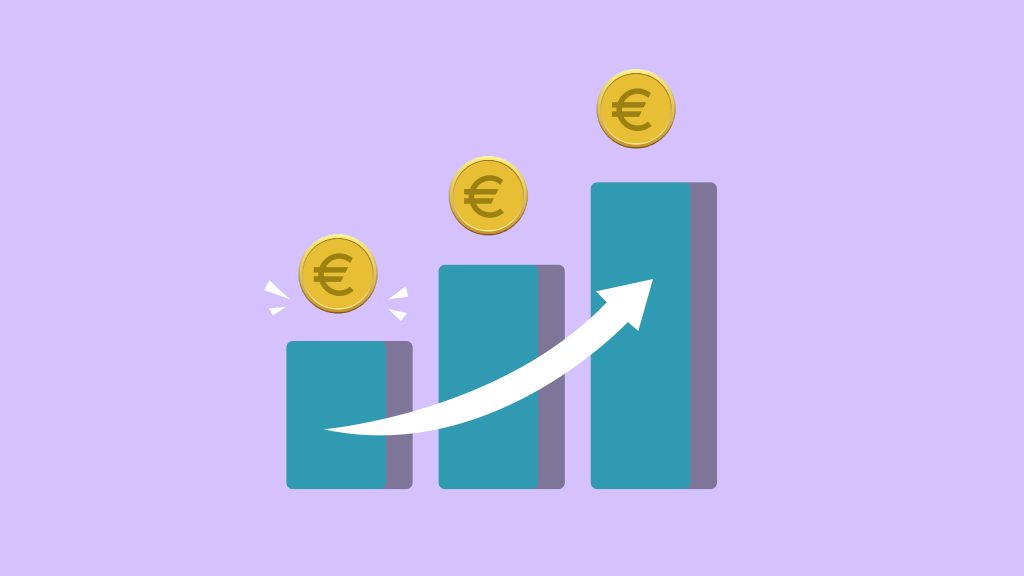Are you sick and weary of being weighed down by debt? Do you want for financial stability yet feel caught in a never-ending cycle of borrowing and financial hardship? You’re not by yourself. There is optimism despite the fact that millions of people and families are burdened with debt. This article provides a faith-based strategy for reaching true financial freedom and getting out of debt God’s way.
Getting out of debt God’s way isn’t about quick cures or miraculous formulas. It involves seeking guidance from the scriptures and integrating biblical concepts into your financial habits. It’s about realizing that being a good steward of the resources that God has given us is what leads to true prosperity, not merely acquiring wealth. These biblical ideas will be examined in this guide, along with helpful advice on how to escape debt and find the serenity that comes from having a stable financial situation.
READ ALSO: How to Save Money Even When the Budget is Tight

Biblical Principles for Financial Stewardship
The Bible has a lot to teach us about handling money and becoming truly prosperous. Scripture gives us instructions on how to manage money, debt, and belongings in everything from Proverbs to the Gospels. For instance, Proverbs 22:7 states that “The rich rule over the poor, and the borrower is slave to the lender.” This bible verse emphasizes the significance of aiming for financial independence as well as the possible risks associated with debt. In order to get out of debt God’s way, we must comprehend and put these ideas into practice.
The idea of stewardship lies at the core of biblical finance. We are expected to manage everything that God has given us responsibly, including our money, time, skills, and belongings. 1 Peter 4:10 reminds us, “Each of you should use whatever gift you have received to serve others, as faithful stewards of God’s grace in its various forms.” This entails acknowledging that whatever we possess ultimately belongs to God and that we must answer to Him for our actions. Getting out of debt God’s way necessitates that we approach our money with stewardship.
Making the distinction between necessities and wants is a crucial component of stewardship. The distinction between these two ideas is frequently blurred by our consumer-driven culture, which makes us feel as though we require the newest technology, the newest styles, or opulent trips. Nonetheless, a biblical viewpoint promotes thankfulness and contentment for what we have, acknowledging that genuine fulfillment stems from a relationship with God rather than material belongings. Philippians 4:11–12 encourages us to find contentment in all situations, whether we are in abundance or in need. When it comes to getting out of debt God’s way, this satisfaction is essential because it keeps us from giving in to the want to overspend and take on more debt.
PEOPLE ALSO READ: God’s Principles of Financial Prosperity

Practical Steps to Getting Out of Debt God’s Way
Now that the scriptural basis has been established, let’s move on to the doable stages for paying off debt in God’s way:
1. Establish a Budget: Knowing where your money is going and where you may make savings requires a budget. After a month of keeping track of your earnings and outlays, classify your expenditures. Find ways to cut back on wasteful spending, such eating out, entertainment, or subscription services, and use the money saved to pay off your debt. Making a budget enables you to consciously manage your resources and is a real example of stewardship.
2. Select a Debt Repayment Strategy: The Debt Avalanche and the Debt Snowball are two well-liked strategies. To increase motivation and momentum, the Debt Snowball method calls for paying off the smallest bills first, regardless of interest rates. In order to save you money over time, the Debt Avalanche prioritizes paying off the loans with the highest interest rates first. Select the approach that inspires you to continue on course and fits your personality the best. Seek God’s wisdom in selecting the best approach for your circumstances by praying for direction.
3. Raise Income: Look at ways to raise your income. This could entail selling unwanted goods, taking on a part-time job, freelancing, or negotiating a raise at your existing position. Your path to financial independence can be accelerated by using every additional dollar you make to pay off debt. As you look for additional sources of income, don’t forget to pray for God’s provision and direction.
4. Talk to Creditors: Don’t be scared to speak with your creditors and lay forth your case. They might be open to lowering your interest rate or working with you to arrange a more affordable payment schedule. Be honest and humble in these discussions, and have faith that God will provide opportunities for you.
5. Seek Astute Advice: Speak to a mentor in your faith community or a reputable financial advisor. They can help you on your path to financial independence by providing direction, accountability, and support. According to Proverbs 15:21, “Plans fail for lack of counsel, but with many advisers they succeed.” One of the most important aspects of getting out of debt God’s way is seeking competent counsel.

PEOPLE ALSO READ: What to Do When Money is Tight
Maintaining Financial Freedom God’s Way
It’s essential to develop sound financial practices after reaching the debt-free milestone in order to preserve your financial independence. The way of God:
1. Establish an Emergency Fund: Begin setting aside money for unforeseen costs like auto repairs or medical bills. Make sure your emergency fund covers three to six months’ worth of living expenses. When unforeseen circumstances arise, this will act as a safety net for your finances and save you from getting into debt again. We are reminded in Proverbs 21:20 that “The wise store up choice food and olive oil, but fools gulp theirs down.” Creating an emergency fund is a prudent move that is consistent with biblical teachings.
2. Invest Wisely: Learn about numerous investing possibilities and establish a long-term investment strategy that corresponds with your financial goals and biblical beliefs. To make wise investment choices that please God, think about consulting a Christian financial counselor.
3. Give and Tithe: Keep supporting your neighborhood church and giving back to God. Giving shows our faith in God’s provision and is an act of worship.
4. Ongoing Education and Development: Learning about personal finance is a lifelong process. Keep learning, getting sage advice, and developing your comprehension of biblical stewardship. Read books, go to seminars, and discuss money matters with other Christians. Your ability to handle your money in God’s way will improve as you gain more knowledge.
5. Practice Gratitude: Develop an attitude of thankfulness for all that God has given you. This will assist you in finding contentment in your existing situation and avoiding the lure of consumerism. According to 1 Thessalonians 5:18, we should “give thanks in all circumstances; for this is God’s will for you in Christ Jesus.” Being grateful is crucial to preserving financial independence in God’s way.
6. Teach Others: As your comprehension of biblical money deepens, impart your wisdom to others. This may include teaching a financial literacy program at your church, helping someone who is facing financial difficulties, or just having candid discussions about money with friends and family. You can strengthen your own knowledge and improve your community’s financial stability by instructing others.
7. Pray for Direction: During your financial path, use prayer to ask God for direction. Pray for insight in picking the correct course, fortitude to withstand temptation, and wisdom when making financial decisions. Proverbs 3:5-6 urges us to “Trust in the Lord with all your heart and lean not on your own understanding; in all your ways submit to him, and he will make your paths straight.” A key component of getting out of debt God’s way and preserving financial independence is prayer.
8. Steer clear of get-rich-quick schemes. Financial techniques or investment possibilities that promise simple and rapid money should be avoided. These can result in financial devastation and frequently pose high risks. We are cautioned in Proverbs 13:11 that “Dishonest money dwindles away, but whoever gathers money little by little makes it grow.” It is more biblically sound and sustainable to build riches gradually and steadily via hard effort and prudent investments.
9. Live Below Your Means: You should continue to live below your means even after you have settled your debt. This entails conserving the difference between your income and expenses. This will enable you to accumulate wealth, make long-term investments, and give more liberally.
10. Keep in Mind Your Ultimate Goal: God can use your money as a tool to further His kingdom. Think about how you can use your resources to support missions, aid the poor, and change the world as you become financially independent. This is a crucial step in Getting out of debt God’s way, not only for your personal gain but also for God’s honor.
PEOPLE ALSO READ: Biblical Financial Planning

In conclusion
Getting out of debt God’s way necessitates dedication, self-control, and faith in God’s wisdom. It’s about changing your relationship with money and bringing your finances into line with God’s will, not just about getting rid of debt. You can escape the shackles of debt and discover the genuine financial freedom that results from leading a life of stewardship, contentment, and charity by adhering to these biblical precepts and doable actions. Keep in mind that everything is possible with God, including obtaining long-term financial stability.
What steps will you take today to begin your journey towards getting out of debt God’s way? Share your thoughts and commitment in the comments below!